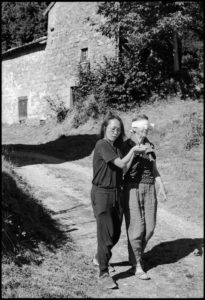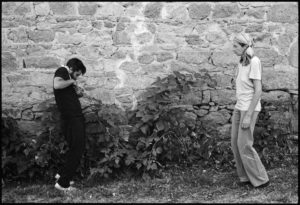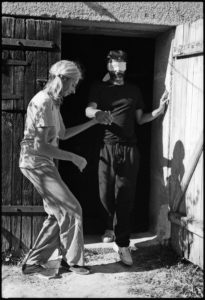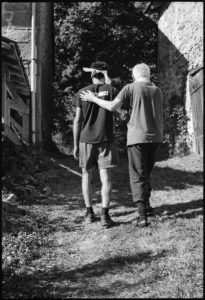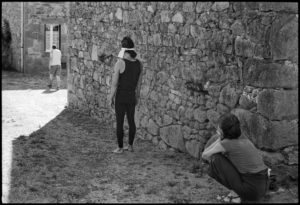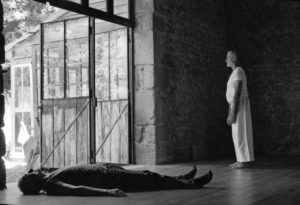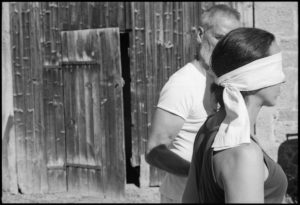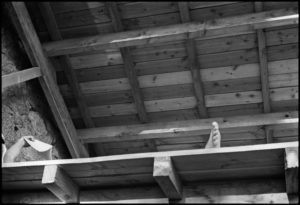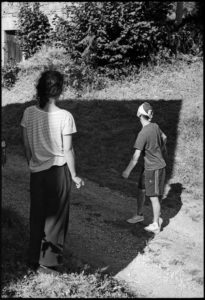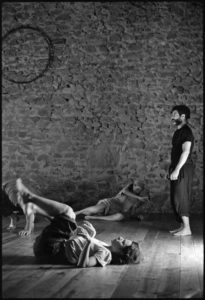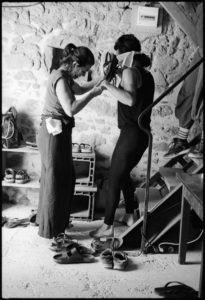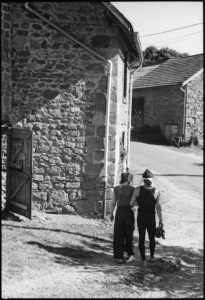Author Archives: Site de pratiques théâtrales
(Français) ateliers Polyphonies – occurrences de fin 2022
(Français) Soirée partagée le 8 juillet à Lavauzelle
(Français) Voice and Body / Polyphonies (J. Parente, J-F. Favreau) à Lisbonne
(Français) 2022 – ateliers polyphonies…
(Français) Vaudou_Holidays, on y est !
r
(Français) “J’ai écouté dire” – atelier de collecte et réalisation sonore
Voodoo_Holidays
VOODOO_HOLIDAYS
Residence, workshop and artistic action around the arts of Voodoo, in Creuse,
orchestrated by the Lavauzelle Theater Practices Site (Janaillat)
and the Constance Social Club (Faux-la-Montagne)
From June 24 to July 5, 2021
Holiday: vacancy, but also “holy day”, for the director Jerzy Grotowski, means a suspended, exceptional time that escapes from productivity. By abandoning the social game, a group of participants makes themselves available to new extra-daily relationships, as well as to a work of self-revelation – what Grotowski calls “act” – including the relationship to the other and to nature.
Holy is also whole, holistic, a way of perceiving that something occurs when the whole being is engaged, in relation to his environment, which invites redoubled attention to the seemingly most mundane processes.
Vaudou_Holidays is, thus, the organization of a vacation time by meeting and sharing life with a community of Haitian voodoo practitioners. This community, formed in 2015 by the director Fabrice Nicot and his team, around the artistic and ritual form named Crossing the Barrier, is made of six practitioners: priestesses (mambos), singers and percussionists, originating from Jacmel and Cap-Haitien communities.
There is an urgent need for a place where we do not hide ourselves and simply are as we are… Does it mean that we are in a vicious circle, that life is different here, and different there ? No, I think that this will come out outside the place I have been talking about, will come out through a small opening, gap, window, door, penetrate outside.
Jerzy Grotowski, the day that is holy
Programme
FIRST PART
June 24-30th : A six-day integration of the group of voodoo practitioners into the environment of the village of Faux-La-Montagne under the holistic sign of vacancy. Artistic and / or ritual practices, will be woven into elementary actions of human and collective life, in a way so that they communicate together. In voodoo culture, cooking, sleeping, dreaming, caring, sharing, celebrating, relating to places… form a continuum.
This canvas will be irrigated by the proposals and participation of inhabitants, doctors and healers, cooks, farmers and herbalists, funeral workers, artists, fireworks, citizens…
The celebration emerges from the fabric of everyday life, from what we have shared together, from what we have prepared, eaten, assembled, woven into the material and among ourselves. In return, the prosaic is ceaselessly irrigated by the incursion of the sacred into the space of practice.
This six-day common life is open to everyone, without prior registration, and will take place in Faux-la-Montagne and its surroundings, around the Constance Social Club where updated information will always be available.
SCOND PART
The following days (July 1 to 4), an artistic practice workshop will be organized with the Haitian group, inviting to question through personal and collective experience the ritual forms of voodoo.
To build this workshop programme, the Haitian group and repertoire will be accompanied by 2 other proposals : the choreographer of Beninese origin Vincent Harisdo, together with the team of the “Accordée” project (dir. Nadège Ametogbe), will offer an opening on the Vodù sources of the movement in the traditions of Africa of the west.
The workshop will also make room for the perception of the performing arts of Voodoo by European theater, with the presence of a director close to the work of Jerzy Grotowski’s Workcenter (under confirmation).
The evenings, finally, will allow participants, but also guest artists, to cross their own practice with that of Haitian artists. It will take place at the Lavauzelle Theater Practices Site, in the town of Janaillat.
On July 1st will take place an improvisation session, together with the haïtian group and the percussionist Lê Quan Ninh
On July 2nd, an open stage will take place.
On July 3rd will be presented the danced conference of Vincent Harisdo on Benineese Voodoo
On July 4th will be presented the artistic action/ritual “Crossing the border” with the Haïtian group.
A scenic / ritual action will also be presented there in the evening, July 4.
FEES
- Price of the worksession : 180 / 120 e (reduced fee)
- accommodation : 15 e/night
- food : 12 e/day
- events : participation up to the audience
applications for the worksession to be sent to spt (at) lavauzelle.org
Haitian Voodoo
The traditional practice of performing arts and ritual Voodoo, or Vodou, or Võdù, has its origins in West Africa. Transposed on its arrival in the Caribbean, due to the slave trade, it becomes in Haiti a resource for the people, making it possible to preserve a space outside of society where the relationship to the world of ancestors can be lived, a space in which to regenerate their community life. It is a space where individuals fulfill themselves. Paradoxically, put “outside of themselves” by the famous possession of the spirits, the celebrants at the same time manifest their own, deep singularity, in very intense connection with the community.
Haitian voodoo plays an economic, social, political and subversive role. Syncretism of African, Amerindian and European cultures, which has become a fully-fledged tradition, Haitian voodoo and its warlike references served as an ideological base for the revolt of the slaves deported to the Island of Hispaniola – today the Dominican Republic and Haiti . Vodou works for social transformation because it is subversive.
Fabrice Nicot and Stéphane Poliakov, Paris 8 University
Invitation to join : Faux-la-Montagne
The stay at Faux-la-Montagne will be inaugurated with a welcome party, around the lake, and oriented towards a concluding time of joint celebration, a feast / ritual, in the vicinity of the village. To feed the thread of these days and lead to these highlights, we have chosen the channel of a few verbs: eat, care, celebrate, die, sleep.
The inhabitants of the Millevaches plateau and its surroundings prepared proposals to share, initiatives, experiences, questions, skills, or even recipes, in relation to these verbs. This can take the form of a workshop, a collective achievement, a guided discussion time, a walk, a musical moment …
This process will be activated by the inhabitants of the Plateau together with the haïtians. It will be a pretext to suspend the progress of the daily imperatives, allowing to reinvent the relationship, the sharing, and the relationship to time.
That is why, people are welcome on the site of Faux-la-Montagne, and invited to reserve an accommodation, if necessary, at the camping of the village.
A framework articulating the various proposals will be announced everyday at the Constance Social Club of Faux-la-Montagne.
This program is supported from the DRAC Nouvelle-Aquitaine, the Creuse Sud-Ouest community of municipalities, Pairs 8 university, the ArTeC university Labex, the Grotowski Institute in Wroclaw, Poland, with the support of the french embassy in Haïti, and the Constance Social Club association (Faux-la-Montagne).
The art of Võdù dance is a language, and this language is based on the concept of transformation and metamorphosis, which are the keys to understanding Võdù. Võdù dance can cross the barrier of consciousness to allow us to reach our pre-cognitive being, deeply buried in ourselves. He sees the body as a “time vessel” that transports the souls of our ancestors from the past to the future, and he encourages us to invite them to participate in our present dance. The Võdù dance is characterized by the erasure of character, the differentiation between the natural and the neutral. The passage through the neutral is the basis of the artist’s transformation process, which will then allow him to bring out all kinds of creatures hidden inside.
Vincent Harisdo, choreographer

